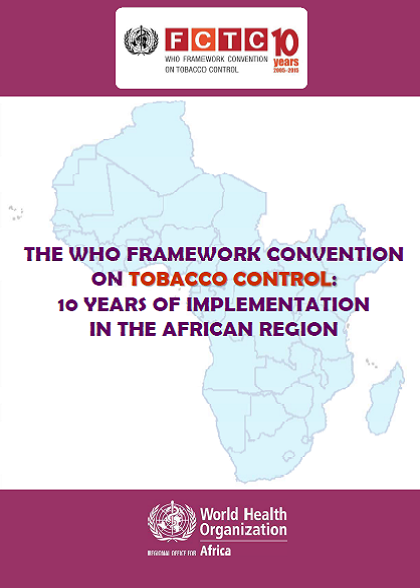
The WHO Framework Convention on Tobacco Control: 10 years of implementation in the African Region
This 10-year report highlights the achievements made in the African Region in implementing the WHO Framework Convention on Tobacco Control (WHO FCTC) during the period February 2005 to December 2014. The WHO Regional Office for Africa has been supporting Member States in implementing the provisions of the Convention through national policies, laws and regulations. Significant progress has been made in the Region, but challenges still remain. The WHO Regional Office for Africa remains committed to providing the technical leadership that is required to ensure implementation of the Convention.
The WHO FCTC is the first public health treaty negotiated under the auspices of WHO. It was adopted unanimously by the World Health Assembly on 21 May 2003 and entered into force on 27 February 2005. To date, 180 countries have ratified the WHO FCTC, including 43 Member States in the African Region.
The WHO Regional Office for Africa has been supporting Member States in implementing the provisions of the Convention through national policies, laws and regulations.
During the Sixth session of the Conference of the Parties to the WHO FCTC, held in Moscow, Russian Federation, in October 2014, delegates from the African Region resolved to mark the 10-year milestone since entry into force of the Convention.
Recent years have witnessed significant achievements, innovative approaches and positive trends, which demonstrate the strong commitment of countries in the Region to achieving full implementation of the Convention. Member States are making huge efforts to develop and implement tobacco control policies and programmes, despite the challenges they face. We must ensure, however, that implementation of the Convention is multisectoral and comprehensive. The “whole-of-government” approach remains the best way to realize the full benefits of the WHO FCTC, and thus tobacco control, which is a key element in the prevention and control of noncommunicable diseases.


